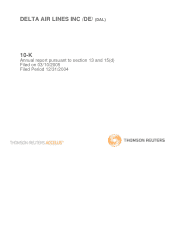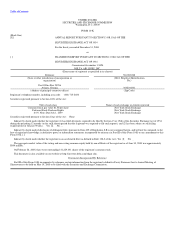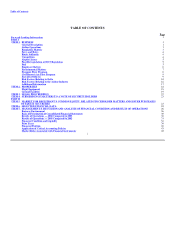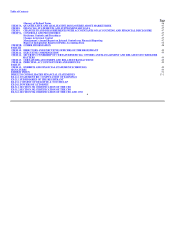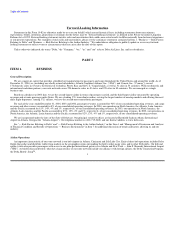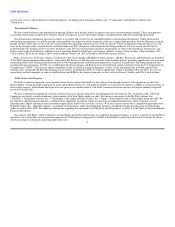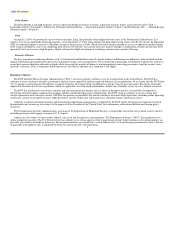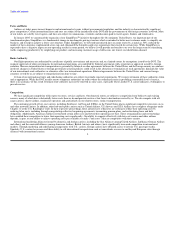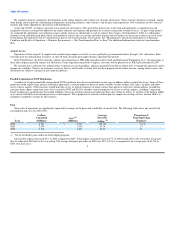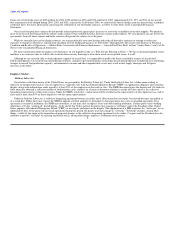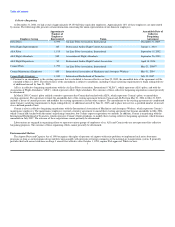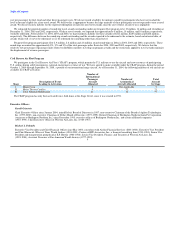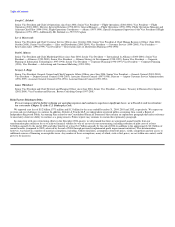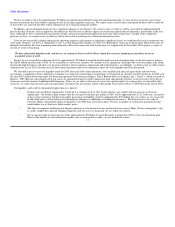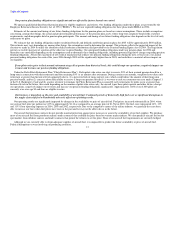Delta Airlines 2004 Annual Report Download - page 7
Download and view the complete annual report
Please find page 7 of the 2004 Delta Airlines annual report below. You can navigate through the pages in the report by either clicking on the pages listed below, or by using the keyword search tool below to find specific information within the annual report.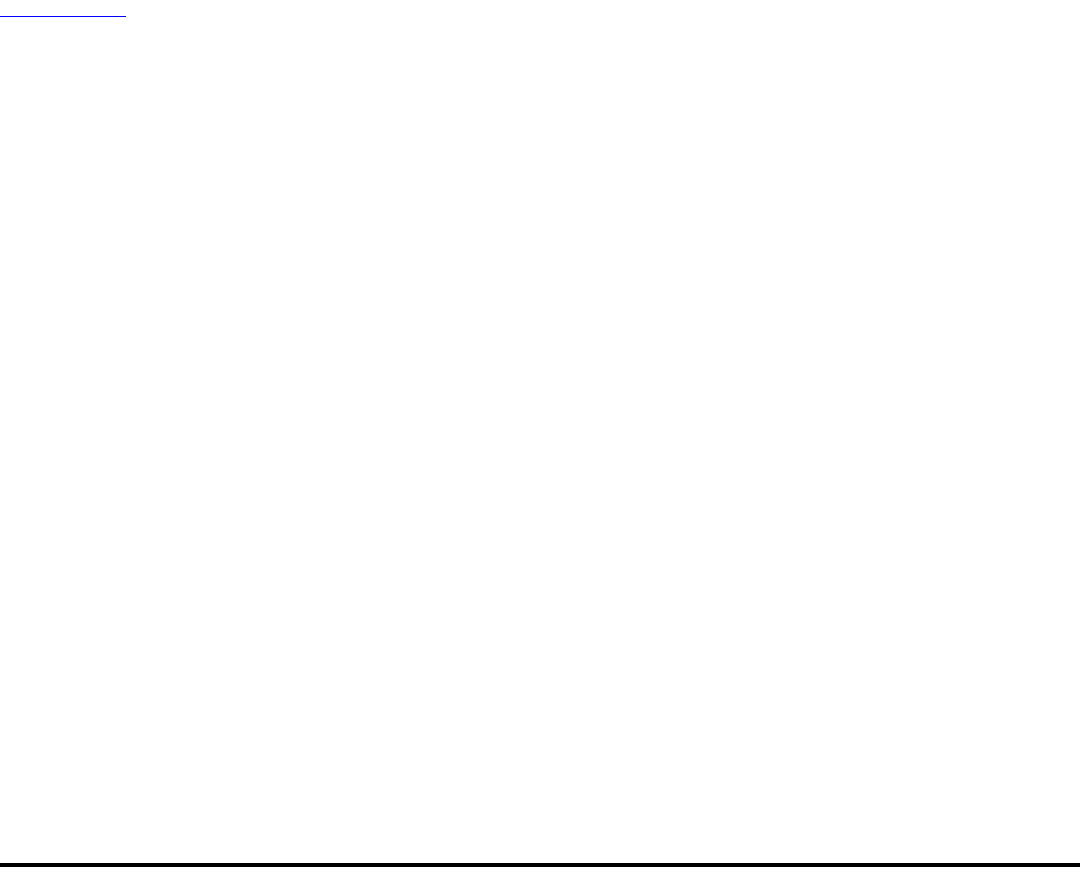
Table of Contents
Delta Shuttle
The Delta Shuttle is our high frequency service targeted to Northeast business travelers. It provides nonstop, hourly service between New York —
LaGuardia Airport ("LaGuardia") (Marine Air Terminal) and both Boston — Logan International Airport ("Logan") and Washington, D.C. — Ronald Reagan
National Airport ("National").
Song
On April 15, 2003, we introduced a new low-fare operation, Song, that primarily offers flights between cities in the Northeastern United States, Los
Angeles, Las Vegas and Florida leisure destinations. As of December 31, 2004, Song offered 142 daily flights using a fleet of 36 B-757 aircraft. In September
2004, we announced plans to convert 12 Mainline aircraft to Song service in 2005, which will enable Song to expand its service to additional markets during
2005. Song is intended to assist us in competing more effectively with low-cost carriers in leisure markets through a combination of larger aircraft than those
operated by low-cost carriers, high frequency flights, advanced in-flight entertainment technology and innovative product offerings.
Domestic Alliances
We have entered into marketing alliances with (1) Continental and Northwest and (2) Alaska Airlines and Horizon Air Industries, both of which include
mutual codesharing and reciprocal frequent flyer and airport lounge access arrangements. These marketing relationships are designed to permit the carriers to
retain their separate identities and route networks while increasing the number of domestic and international connecting passengers using the carriers' route
networks. Currently, Delta, Continental and Northwest are allowed to codeshare on a combined 5,200 flights.
Regulatory Matters
The DOT and the Federal Aviation Administration ("FAA") exercise regulatory authority over air transportation in the United States. The DOT has
authority to issue certificates of public convenience and necessity required for airlines to provide domestic air transportation. An air carrier that the DOT finds
"fit" to operate is given unrestricted authority to operate domestic air transportation (including the carriage of passengers and cargo). Except for constraints
imposed by Essential Air Service regulations, which are applicable to certain small communities, airlines may terminate service to a city without restriction.
The DOT has jurisdiction over certain economic and consumer protection matters such as unfair or deceptive practices or methods of competition,
advertising, denied boarding compensation, baggage liability and disabled passenger transportation. The DOT also has authority to review certain joint
venture agreements between major carriers. The FAA has primary responsibility for matters relating to air carrier flight operations, including airline operating
certificates, control of navigable air space, flight personnel, aircraft certification and maintenance, and other matters affecting air safety.
Authority to operate international routes and international codesharing arrangements is regulated by the DOT and by the foreign governments involved.
International route awards are also subject to the approval of the President of the United States for conformance with national defense and foreign policy
objectives.
The Transportation Security Administration, a division of the Department of Homeland Security, is responsible for certain civil aviation security matters,
including passenger and baggage screening at U.S. airports.
Airlines are also subject to various other federal, state, local and foreign laws and regulations. The Department of Justice ("DOJ") has jurisdiction over
airline competition matters. The U.S. Postal Service has authority over certain aspects of the transportation of mail. Labor relations in the airline industry are
generally governed by the Railway Labor Act. Environmental matters are regulated by various federal, state, local and foreign governmental entities. Privacy
of passenger and employee data is regulated by domestic and foreign laws and regulations.
3

